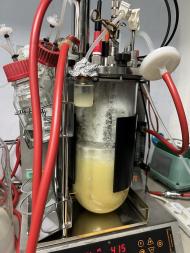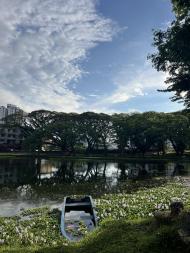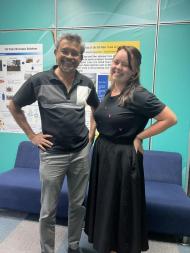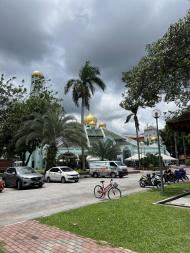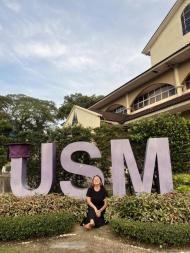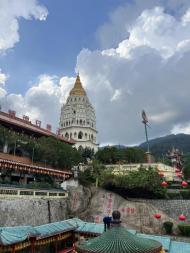Topic
4 April 2025
PhD student Veronika Řeháková on bioplastics research in Malaysia: If you put your best into science, it will bear tasty fruit
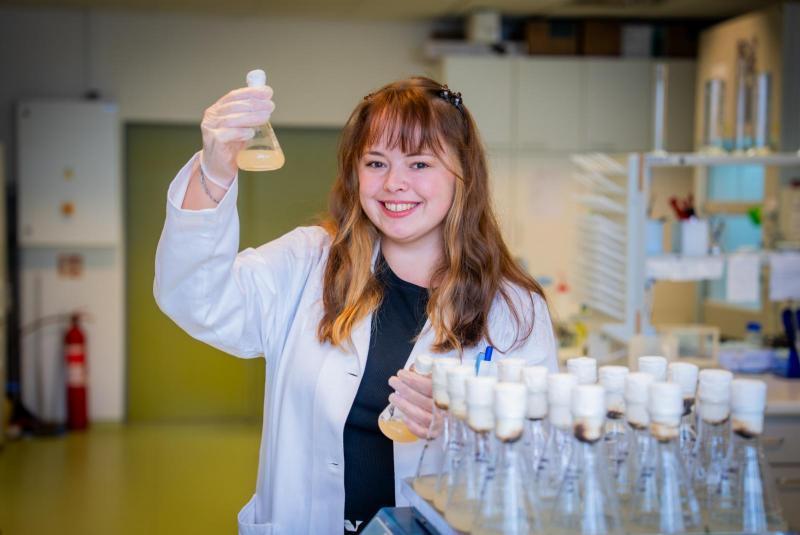
Veronika, what led you to decide to undertake an internship with Professor Kumar Sudesh in Malaysia?
Professor Sudesh is one of the leading experts in the field I work in. His research focuses on polyhydroxyalkanoates, materials very similar to conventional plastics but biodegradable, biocompatible, and non-toxic. This makes them highly promising, even for medical applications. It is also the main topic of my dissertation. Additionally, I had previously visited Malaysia on vacation and loved it, so working in Professor Sudesh’s lab was an ideal choice. Some people think Malaysia is an underdeveloped country, but it is quite similar to ours.
What research were you working on?
I focus on polyhydroxyalkanoates, which are bioplastics produced by bacteria. At our faculty, I work with very small volumes—cultivations usually take place in flasks containing hundreds of milliliters. In Malaysia, I had the opportunity to work with bioreactors, which are larger "vessels" where bacteria can be cultivated on a scale of several liters. Bioreactors offer a significant advantage—they are fully controllable. It is possible to set precise conditions that best suit the bacteria, significantly increasing the efficiency of bioplastic production. My research focuses on copolymers, which are composed of various monomeric units and generally have better properties than the most common homopolymer, poly-3-hydroxybutyrate, which is relatively brittle. Although my colleagues in Malaysia did not work with the same type of bacteria as I do, our collaboration was mutually enriching.
What challenges did you face during your research?
Working in a laboratory comes with many challenges, especially when dealing with bacteria. They may be microscopic organisms, but they are not always obedient. Even when provided with ideal conditions, they do not always behave as expected. Sometimes, they simply "shut down," stop growing, or even start breaking down the biopolymer stored in them, much like how humans store fat.
Another significant challenge is the environment. Bacteria are very sensitive to temperature changes, and any transfer from one place to another can be stressful for them. I work with thermophilic bacteria that grow at higher temperatures, so sterility is not as critical. Not all bacteria can survive at 50 degrees Celsius like mine, which lowers the risk of contamination, but there are still many factors that can go wrong.
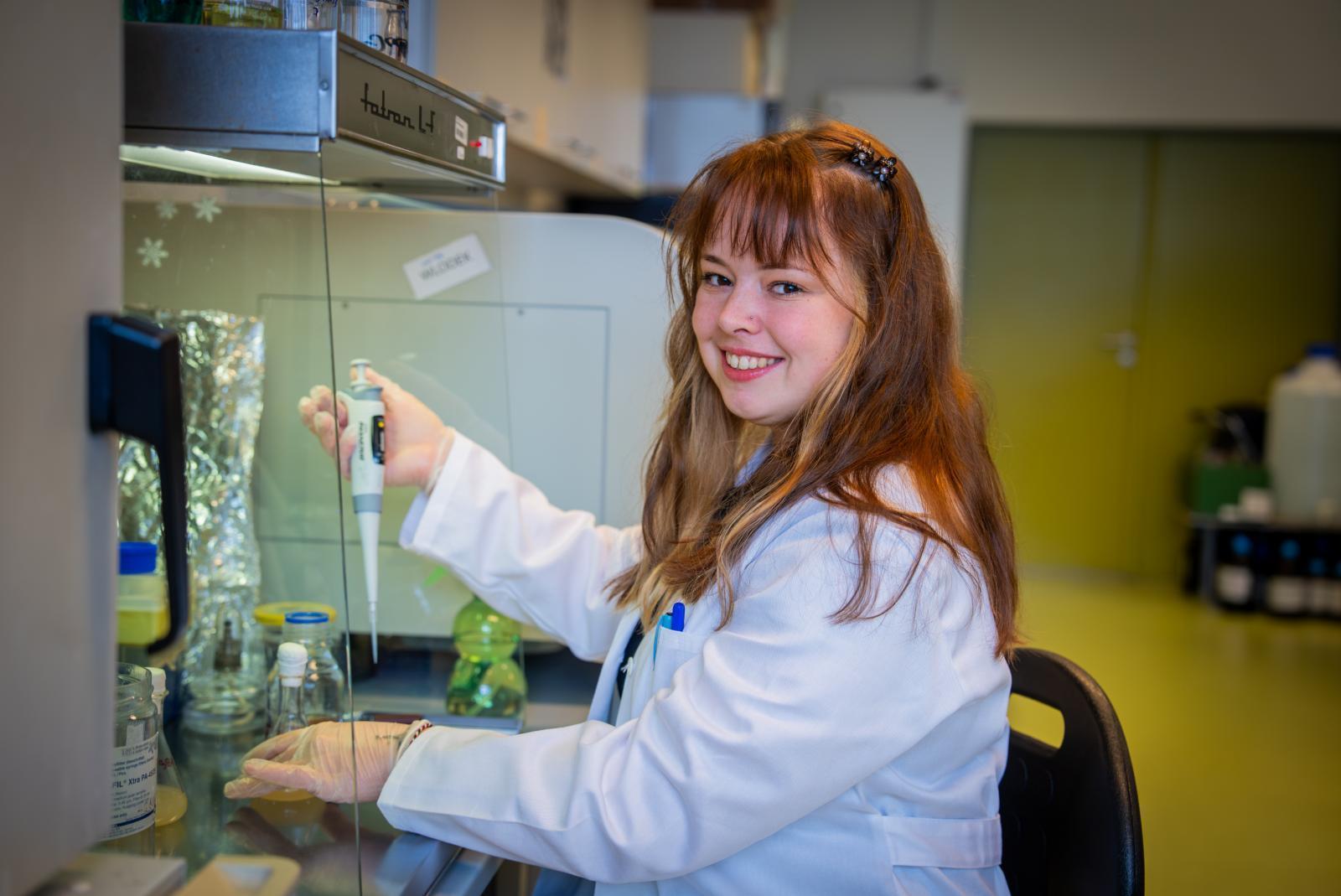
How did the internship help your dissertation work?
The internship in Malaysia directly contributed to my dissertation. At FCH, we also try to cultivate polyhydroxyalkanoates in bioreactors, but I encountered several issues. The bacteria did not grow optimally, and there were challenges, such as pH control. I knew that the Malaysian team had a different perspective on these processes and hoped they could help me identify what I was doing wrong. My initial attempts were unsuccessful, so I had to work step by step to understand the issues, improve them, and achieve better results. Eventually, I succeeded.
What do you think is the future of bioplastics?
Overall, I believe that what we and our colleagues in Malaysia are doing has enormous potential. We are searching for alternatives to conventional plastics because plastic waste is an increasingly pressing issue. Bioplastics already exist and are applicable, but replacing traditional plastics entirely will take time. One advantage is that their production does not require expensive raw materials—bacteria can be "fed" with food industry waste containing sugars or fats, which are then converted into biodegradable plastic.
The biggest obstacle is financial. Traditional plastic is extremely cheap and almost a perfect material—its only drawback is its environmental footprint. One possible solution could be increasing the cost of plastics, but that is, of course, an unpopular topic. In Malaysia, I saw firsthand how severe the plastic waste problem is. In Europe, we have recycling and regulations, but plastic use is much higher there, and recycling is often non-existent.
Did you participate in any other projects?
Although I did not work directly on other projects, I had the opportunity to observe various interesting studies. One of them, a collaboration between Professor Sudesh and Japan, focuses on processing oil palm trunks. Palm plantation renewal is a major issue, and this project seeks sustainable solutions. Instead of treating unused trunks as waste, they explore ways to add value—such as using them as a carbon source for bacteria that then produce bioplastics. This aligns well with the concept of a circular economy and more sustainable agriculture.
Another great opportunity was attending and collaborating on a prestigious international conference focused on polyhydroxyalkanoates, organized in Penang by Professor Sudesh. It was fascinating to meet people whose names I had only read in scientific papers. It provided a chance to gain new contacts, share experiences, and network.
How was your collaboration with local scientists?
Working with local scientists and students was fantastic. Malaysia is a multicultural country with many ethnic groups, which might be why its people are so open. They welcomed me from day one and treated me as if I had always been there. We collaborated almost daily—I had to learn how to operate their specialized, expensive equipment.
Professor Sudesh, in particular, is an exceptionally goal-oriented person who approaches scientific work strategically and systematically. He carefully considers task assignments to ensure they are achievable while still allowing room for creativity. Each team member had a clearly defined goal, enabling effective work and motivation to find new solutions.
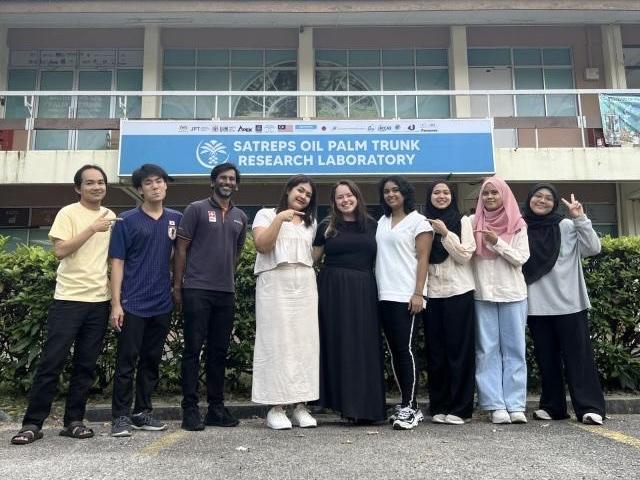
Where can we draw further inspiration?
If I focus on my experience with research on polyhydroxyalkanoates, I was certainly inspired by Professor Sudesh's approach in this respect. For example, I was interested in the method of extracting PHA using mealworms, which is more environmentally friendly than traditional solvents. The worms feed on bacterial biomass and extract the pure polymer - kind of like civet coffee, but with bioplastics.
What cultural differences surprised you the most?
In academia, the most surprising aspect was the intense work ethic. Unlike in the Czech Republic, where people typically leave the faculty around five or six, I often stayed late into the evening. The concept of a "free weekend" was almost non-existent. People started work at ten but worked for 12 hours regularly. At first, this was shocking, but I eventually adapted. However, I believe it is not the healthiest approach, as their social lives suffered as a result. Even though my time off was short, I managed to take a week-long trip to Borneo and spend a weekend in Thailand or Bali.
In daily life, I was surprised by things like eating rice for breakfast or the lack of pedestrian crossings, requiring people to run across six-lane roads. The most shocking aspect, however, was the local wildlife—on campus, there were more monitor lizards per square meter than students! I also had geckos in the kitchen and saw monkeys in the park.
Malaysia is a very religious country and this is reflected in academia. There were many different religions in our team - Islam, Hinduism, Buddhism and people with no faith. In Malaysia, it doesn't matter who you are, who you pray to or how much money you have. People here live in peace and harmony, which is incredible.
What are the most valuable insights from your internship that you will take with you into your future scientific work?
While it may seem at first glance that my work ethic didn't quite fit, it is paradoxically something I take away as a valuable insight. By how hard on themselves and disciplined they were in Malaysia, it was clear to see that such an approach gets results. While I believe that work-life balance is important, sometimes it pays to give a little extra, especially when you know it's worthwhile and will bear very tasty fruit.
In general, I like the idea that working in science has a higher calling. In the lab, it's not just about the head, it's also about the hands. Plus, I really enjoy the academic environment - of course there are days when I don't feel like reading papers or writing reports, but more often than not I find the work fulfilling. What fascinates me most about it is that we work with living cells - it's not easy, and that's what's interesting about it.
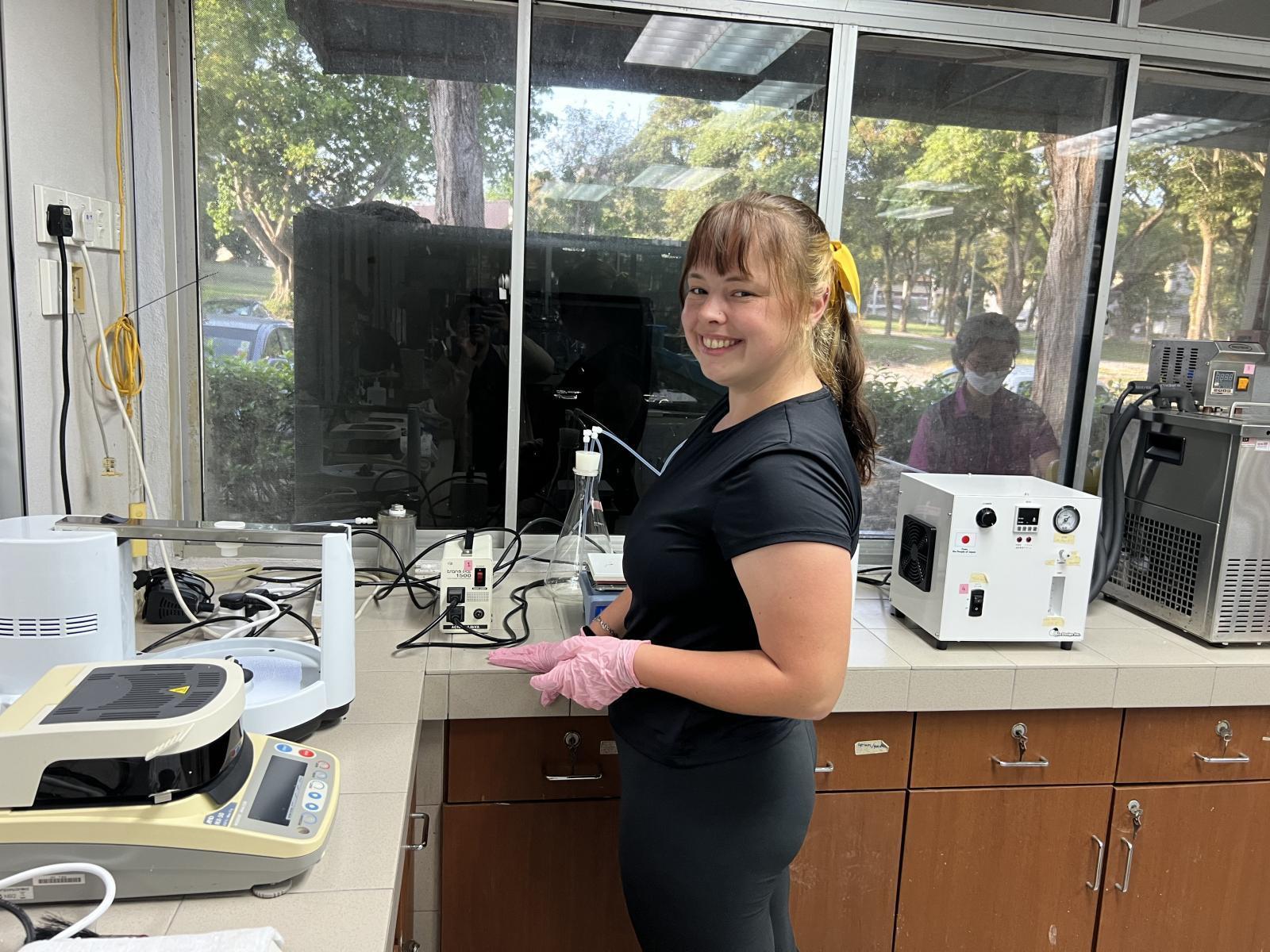
What has this experience brought to your personal life?
This may sound like a cliché. But the way I was cared for there showed me how important it is to care even for people who are strangers to you. From day one, they treated me like I was their own. Even when times got tough, I had their tremendous psychological support, which I really appreciated. When I left, my closest friends from the team came to see me off at the airport, and we still keep in touch even after my return.
Do you have any message for students who might be considering an internship abroad?
Don't hesitate to go! A lot of people are afraid to step out of their comfort zone and leave their family or partner, which is probably the hardest part. But I see it as an opportunity that not everyone has and that we should cherish. At the end of the day, an internship takes little and gives you a lot. It might seem scary at first, but don't be afraid to keep travelling - even if you go to Spain, for example, you still won't go home for the weekend. Personally, I like it when I experience something that takes me out of my comfort zone and gives me a new experience.
Source: Faculty of Chemistry
Bone tissue carriers from 3D printer make bone regeneration more effective. Their formulations are being tested at FCH BUT
Stevan Gavranović studies environmentally friendly lead-free halide perovskites
We can improve the quality of life of the whole population, says Ivana Márová
A lack of hay for horses inspired Joes Jančář to create a smart nutrition for plants
Stanislav Obruča: Throwing waste away is a very expensive thing
